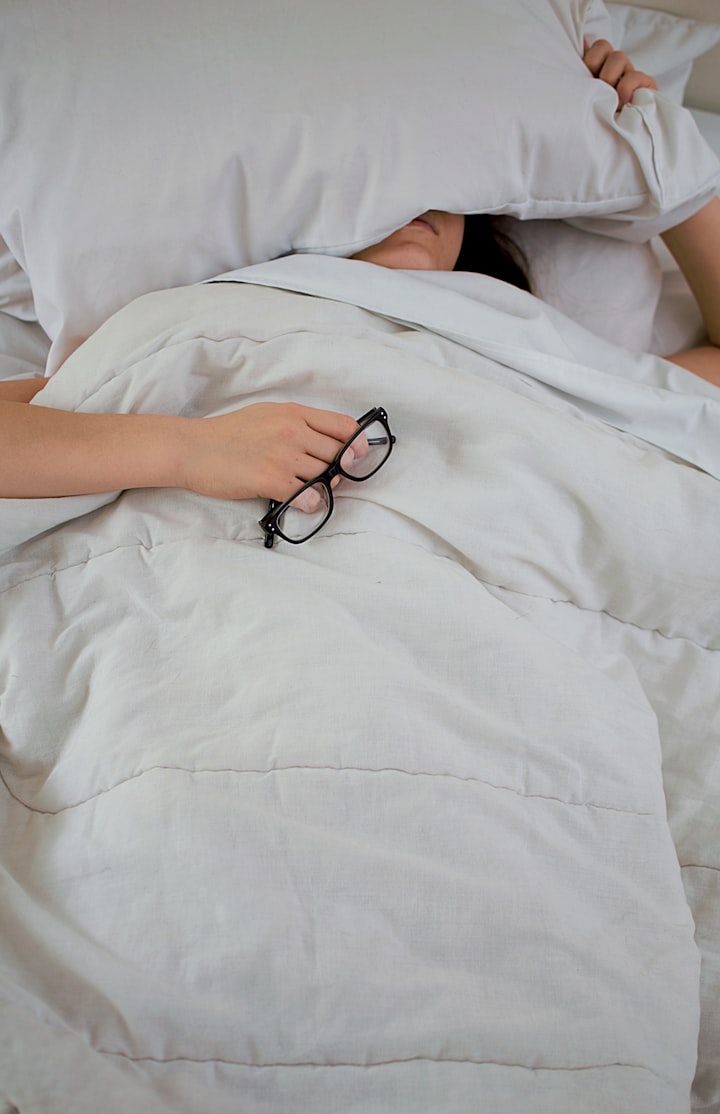How To Sleep Better
How To Sleep Better

Introduction:
Sleep is an essential part of our lives, playing a crucial role in our overall health and well-being. A good night's sleep can improve our mood, cognitive function, and physical performance. However, many people struggle to get the quality sleep they need. In this article, we will explore various tips and techniques to help you sleep better and wake up feeling refreshed and rejuvenated.
1. Establish a consistent sleep schedule
One of the most effective ways to improve your sleep is to establish a consistent sleep schedule. Going to bed and waking up at the same time every day, even on weekends, helps regulate your body's internal clock, making it easier to fall asleep and wake up naturally. Aim for 7-9 hours of sleep per night, as this is the recommended amount for most adults.
2. Create a relaxing bedtime routine
A relaxing bedtime routine can signal to your body that it's time to wind down and prepare for sleep. Consider incorporating activities such as reading, taking a warm bath, or practicing relaxation techniques like deep breathing or meditation. Avoid stimulating activities like watching TV, using electronic devices, or engaging in intense exercise close to bedtime, as these can interfere with your ability to fall asleep.
3. Optimize your sleep environment
Your sleep environment plays a significant role in the quality of your sleep. Make sure your bedroom is cool, dark, and quiet. The ideal temperature for sleep is around 60-67 degrees Fahrenheit (15-19 degrees Celsius). Use blackout curtains or a sleep mask to block out light, and consider using earplugs or a white noise machine to drown out any noise that may disrupt your sleep.
4. Invest in a comfortable mattress and pillows
A comfortable mattress and pillows are essential for a good night's sleep. Your mattress should provide adequate support for your body type and sleeping position, while your pillows should support your head and neck properly. Replace your mattress every 7-10 years and your pillows every 1-2 years to ensure optimal comfort and support.
5. Limit exposure to screens before bedtime
The blue light emitted by screens on electronic devices like smartphones, tablets, and computers can interfere with your body's production of melatonin, a hormone that helps regulate sleep. To promote better sleep, limit your exposure to screens at least one hour before bedtime. If you must use a device, consider using a blue light filter or adjusting the screen's brightness and color temperature to reduce the impact on your sleep.
6. Watch what you eat and drink
What you consume can have a significant impact on your sleep. Avoid large meals, caffeine, and alcohol close to bedtime, as these can disrupt your sleep. Instead, opt for a light snack that contains sleep-promoting nutrients, such as a small bowl of whole-grain cereal with milk, a banana, or a handful of almonds.
7. Get regular exercise
Regular exercise can help improve sleep quality by reducing stress and promoting relaxation. Aim for at least 150 minutes of moderate-intensity aerobic activity or 75 minutes of vigorous-intensity aerobic activity per week, along with muscle-strengthening activities on two or more days per week. However, avoid intense exercise close to bedtime, as it can have a stimulating effect and make it harder to fall asleep.
8. Manage stress and anxiety
Stress and anxiety can significantly impact your sleep quality. Incorporate stress-reduction techniques into your daily routine, such as deep breathing exercises, meditation, yoga, or progressive muscle relaxation. If you find that your stress or anxiety is interfering with your sleep, consider seeking professional help from a therapist or counselor.
9. Limit daytime naps
While short naps can be beneficial for some people, long or irregular napping during the day can negatively affect your sleep at night. If you must nap, limit your naps to 20-30 minutes and avoid napping late in the afternoon or evening.
10. Seek professional help if necessary
If you've tried these tips and still struggle with sleep, it may be time to consult a healthcare professional. Sleep disorders, such as insomnia or sleep apnea, may require medical intervention or specialized treatment.
Conclusion:
Improving your sleep quality is essential for your overall health and well-being. By implementing these tips and techniques, you can create a sleep-friendly environment, establish healthy sleep habits, and enjoy a more restful and rejuvenating night's sleep.
About the Creator
Ayaan Mustafa Ghazi
Meet Ayaan Ghazi, a talented writer with a passion for storytelling and communication. With a degree in English and Creative Writing, I have established themselves as a reliable freelance writer, working for top clients and publications.






Comments
There are no comments for this story
Be the first to respond and start the conversation.